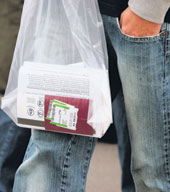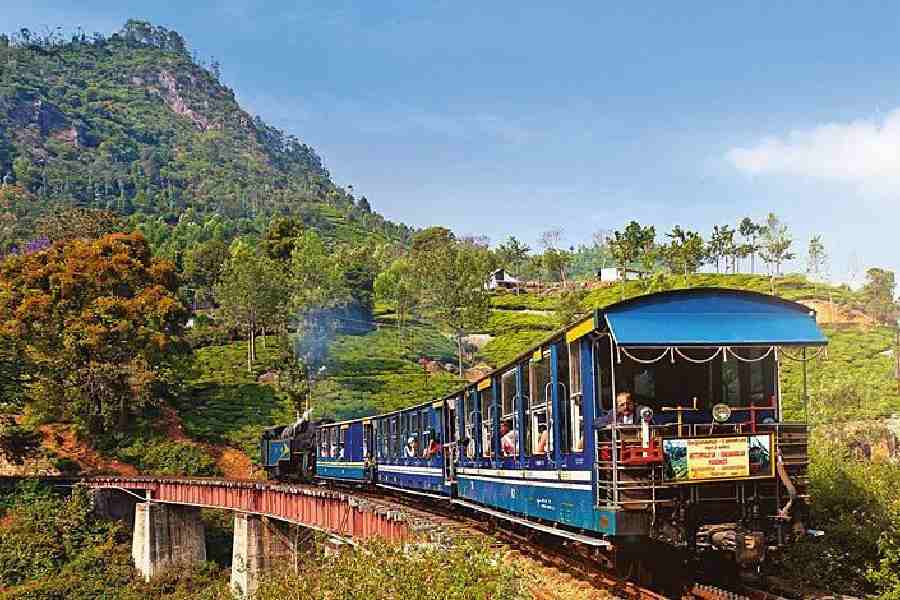 |
It’s 7 pm on August 14, the eve of India’s Independence Day, and there isn’t a single seat left to be occupied in New Delhi’s Kamani Auditorium. A premier hub of cultural activity in the capital, the auditorium is housing a ballet called Krishna under the aegis of the Shriram Bharatiya Kala Kendra. Hordes of people trickle in. Apart from two security personnel who stand guard at the entrance, a rickety metal detector positioned across the gate, is all that the venue has as a security measure. It’s a day of near-official red alert, coming between a foiled terrorist attack at London’s Heathrow airport and possible strikes across Indian cities the day after. Few, however, seem to be mindful of the times.
Even so, a sense of disquiet is evident among many. “I have been watching performances at this auditorium for many years now,” says 38-year-old entrepreneur Anisha Singh. “But of late, I have that niggling fear that something might just go off under my seat while I am engrossed in a play, every time I come here. Not that it stops me from coming, but I am a little nervous nevertheless.”
In Mumbai, meanwhile, 48-year-old social worker Megha Chitanand still takes the local train to work. “But what bothers me is a fear that I might die or be handicapped for life. Even now, when the lights in the train dim slightly or go off, I get very fidgety.” Chitanand has reasons for her anxiety — she was on board the 5.54 pm Borivali fast, which happened to be one of the trains rocked by an explosion during the serial train blasts on July 11.
A deep-rooted sense of falling victim to an act of terrorism, seems to be haunting the psyche of greater urban India today. A survey by The Telegraph and Mode in Calcutta only backs the point. The survey, which reflects the opinions of regular urban professionals such as servicing engineers and IT executives, indicates that nearly 50 per cent of people who use public transport on a daily basis do not feel absolutely safe in the bus or the local train or even the underground metro that they hop on to every day. Some 45 per cent believe air travel is not a safe option these days, and 38 per cent admit they would avoid going to malls and theatres for a while, at least until things are relatively calmer.
That public life, on the one hand, is not quite thrown off gear by security threats is demonstrated by figures. Aditya Sikri, CEO of PVR Spiceworld in Noida on the outskirts of the capital, claims the multiplex had a huge footfall of cinemagoers over the weekend. “More than one lakh people dropped in,” he says. Umesh Tekchandani, regional general manager, INOX, Mumbai, echoes Sikri’s words. “The sale of our tickets has not been impacted at all after the Mumbai train blasts,” he says. But people have become more cooperative while going through security checks, he reveals. “The few who earlier used to crib about frisking have stopped doing so now,” he says.
Airline companies have no steep drop in bookings to report in the aftermath of the Heathrow bomb scare. S.K. Datta, executive director, Jet Airways, says there has been “no perceptible change” on that front. A source at Indian Airlines says bookings out of Mumbai did hover around 56 per cent on August 14, but rose to 70 per cent two days later. The Delhi Metro Rail Corporation (DMRC) recorded about 3.5 lakh people using the underground network on the Sunday preceding Independence Day. “It matched figures recorded on any other Sunday,” says a DMRC spokesperson.
On the other hand, however, certain industries admit to feeling the pinch. “This is an unfortunate time for the tourism industry,” regrets Siddhartha Biswas, manager of Bhromon Sangee, a travel agency in Calcutta that takes hundreds of footloose Bengali tourists on conducted tours all across the country. After the 7/11 Mumbai serial train blasts, and especially after the London bomb threat, tour bookings at the agency have come down from the regular figure of 200 to a figure close to 70. “People are definitely afraid of travelling,” says Biswas.
On an individual level, the scare seems to be more deeply ingrained. “I am afraid of travelling by train,” says Mohammed Salim, who sustained injuries in the compartment of the train that was blasted in Mahim during the Mumbai train explosions. “When I enter a train now, I look all around for any suspicious baggage. To reduce the danger to my life, I take the train only once, on my way back from work, in the evening, preferring to travel by bus in the morning.”
Fear is also reflected in the decision taken by Manmohan Taparia, a student leaving for the US to do an MBA, who preponed his travel plans by a day. “I cancelled my ticket on British Airways for August 19, as I wanted to avoid a stopover in Heathrow, and will now be going via Frankfurt on a Lufthansa flight,” he says.
Seema Hingorrany, a clinical psychologist based in Bandra, Mumbai, says the profile of her clients has begun to change after the 7/11 blasts. “Now I get businessmen, working mothers, teachers and even children plagued with insecurity. Most of them witnessed the accident and get recurring images of them being the next victim, and that they might not be second-time lucky,” she says.
Delhi-based psychiatrist Sameer Parikh feels the sense of fear associated with the public sphere is an anxiety disorder, spurred every time news breaks on the national media of an incident such as a terrorist strike. “It is, however, a normal reaction to an incident with a threat potential, and its effects are not of a long-lasting nature. People do tend to withdraw into a cocoon every time such an incident occurs, but get back to normal after a few days.”
That is perhaps the reason anxieties such as Taparia’s will perhaps wane with time, as incidents like 7/11 slowly fade away from public memory — until another explosion rocks the theatre or the shopping mall next door to bring it all rushing back, that is.
Additional reporting by Velly Thevar and Reena Martins in Mumbai and Shubhobroto Ghosh in Calcutta
The Telegraph- Mode survey
• Do you feel absolutely safe while communicating via public transport these days?
Yes: 51%
No: 49%
• Do you think air travel is becoming a risky option these days?
Yes: 45%
No: 55%
• Do you think you are safe in public places like malls and cinemas?
Yes: 44%
No: 56%
• Did you go out during the Independence Day weekend despite security threat?
Yes: 87%
No: 13%
• Do you tend to worry every time a dear person like parents or children is travelling these days?
Yes: 81%
No: 19%










